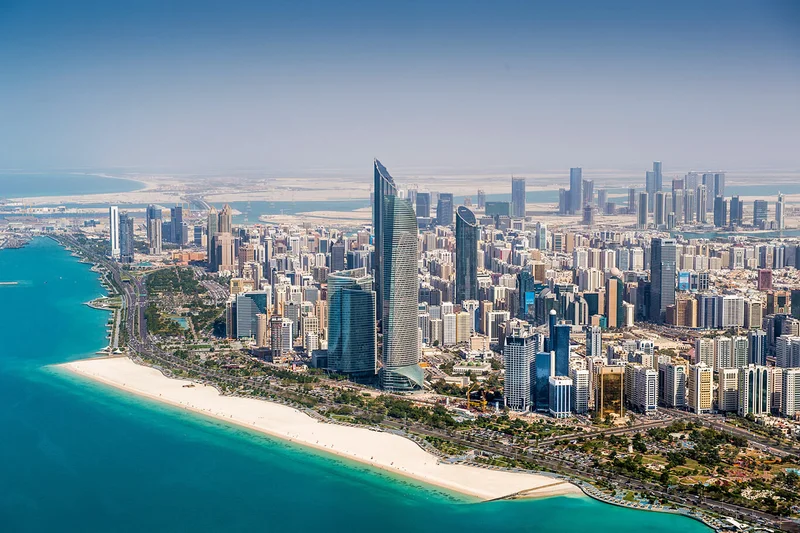XLM Insight | Stellar Lumens News, Price Trends & Guides
XLM Insight | Stellar Lumens News, Price Trends & Guides
Let’s start with a number, because numbers can sometimes tell a profound story. Dh140 million. That's roughly $38 million. For most, a figure like that associated with cybercrime screams one thing: loss. It's the sound of digital doors being kicked in, of savings vanishing into the ether. But the announcement from the Abu Dhabi Police wasn't about a loss. It was about a recovery.
Abu Dhabi police recover Dh140 million from online fraud. When I first saw that figure, I honestly just sat back in my chair, speechless. It's not the monetary value that's staggering; it's what it represents. This isn't just a successful police operation. This is a foundational data point in the grand experiment of building our future society. It's a proof of concept that the digital world we are so eagerly constructing doesn't have to be a lawless frontier. We can, and we are, building systems of trust and consequence right into its very architecture.
For too long, the narrative around cybercrime has been one of fear and inevitability. We've been told to be afraid, to be suspicious, to view every email and every link as a potential threat. And while caution is wise, a society built on perpetual fear is a society that can’t innovate. It can't connect. It can't dream. What Abu Dhabi is demonstrating here is a paradigm shift—moving from a posture of defense to one of active resilience. It’s the difference between building a flimsy wooden fence and cultivating a forest with a thriving, self-regulating ecosystem.
Let's be clear: the challenge is immense. The same two-year period saw 15,642 cybercrime cases. Think about that. It’s not a single, monolithic monster we're fighting. It's a swarm. It’s thousands of small, insidious attacks, from fake job offers that prey on hope to investment scams that exploit ambition. This is a battle fought on the terrain of human psychology. It’s about exploiting trust—a uniquely human vulnerability that is also our greatest strength.
This is why the recovery of that Dh140 million is so important. It sends a message that the system has antibodies. It shows that there is a loop of accountability. This isn’t just about clever forensics or cracking encrypted wallets; it’s about a complex, multi-layered response. In simpler terms, it proves that the digital world is not an anonymous void where actions have no consequences. The long arm of the law is getting a digital upgrade.

But what happens next is even more exciting. The police didn't just hold a press conference to celebrate a victory. They used it to launch the next phase of their strategy: the “Be Careful” campaign. This is where things get really interesting for me, because it's the moment where the strategy pivots from reactive to proactive. It's the transition from treating the disease to inoculating the population. This is our generation's version of the public health revolution. Just as we once learned about germs and the importance of washing our hands to build physical resilience in our cities, we are now learning the principles of "digital hygiene" to build a resilient and thriving digital society.
The “Be Careful” campaign isn't just another series of posters and PSAs. I see it as the blueprint for building the most powerful security system ever devised: the human firewall. It focuses on the nine most common vectors of attack—things like phone scams, fraudulent property deals, and those tempting but fake online ads. It’s a curriculum for the modern age.
This is the kind of work that’s so easy to overlook but is absolutely critical to our shared future—it’s about creating a collective intelligence, a city-wide immune system where one person’s knowledge protects their neighbor which in turn protects the entire network and suddenly we’re not just individuals fending for ourselves but a unified front against this digital chaos. When a population becomes literate in the language of digital threats, the entire system becomes exponentially more secure. Scammers rely on finding the one person who doesn't know the trick. What happens when everyone knows the trick? Their entire business model collapses.
Of course, this places a profound responsibility on all of us. The architects of our digital world—the programmers, the platform owners, the policymakers—have a duty to design systems that are inherently safer and more intuitive. But we, the citizens of this new world, also have a responsibility to become educated, to be vigilant, and to look out for one another. We can't simply offload our security to an app or a government agency. We are the nodes in the network, and its strength is a direct reflection of our own.
So, where does this leave us? We're at a fascinating inflection point. We have tangible proof that we can fight back against digital fraud and win. We have a model for building collective awareness and resilience. The question is no longer if we can build a safe digital world, but what kind of world do we want to build? Do we want one walled off by suspicion, or one connected by informed, confident trust?
Look, the Dh140 million is a fantastic headline. But the real story here isn't the money. The money is just a metric. The real story is the quiet, determined, and incredibly optimistic work of building a society that can embrace the future without being crippled by fear. This is about engineering confidence. It’s a declaration that our digital lives are worth protecting and that we have the tools—both technological and social—to do it. What Abu Dhabi is doing is laying down a layer of trust on which we can build the next generation of government, commerce, and community. And that, to me, is a breakthrough worth celebrating.